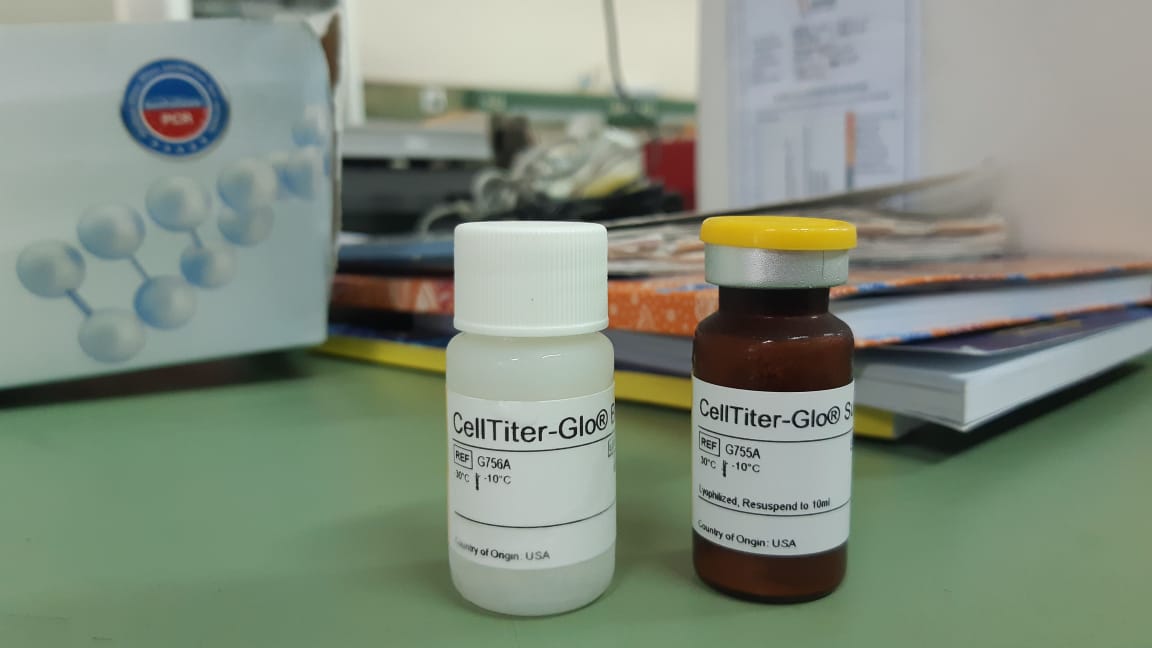UNAIR NEWS – As of 2019, about 38 million people have been reported to be living with HIV, and 690,000 people have died due to AIDS-related illnesses. So it is necessary to use drugs known as antiretrovirals (ARVs) with complex dosage regimens. However, prolonged use of ARV leads to some adverse effects, including drug/ARV resistance.
Based on this problem, HIV researchers from Institute of Tropical Disease (ITD) Universitas Airlangga collaborated with Natural Ingredients Pharmacy researchers, Department of Pharmacy of Tadulako University (UNTAD) Palu to study potential medicinal plants as anti-HIV drugs.
Siti Qamariyah Khairunisa, S.Si., M.Si, an Institute of Tropical Disease (ITD) HIV-1/AIDS researcher said that the Tadulako University research team contributed to the extraction and characterization of compounds from Zingiberaceae, while the research team from HIV laboratory ITD UNAIR is the only laboratory in Indonesia with isolates of HIV, so it contributes to conducting the in-vitro testing of anti-HIV drug. The HIV Laboratory of ITD UNAIR led by Prof. Dr. Nasronudin dr., Sp.PD-KPTI., FINASIM also provided samples from HIV patients for research.
Zingiberaceae is a perennial herb that mostly grows in the subtropical and tropical climates of Asia and the Pacific. According to her, these plants can be found in Lore Lindu National Park (LLNP) Central Sulawesi Indonesia and have been used traditionally by the Topo Baria ethnic group for medicine, food flavoring, and food wrappings.
“There are three endemic species of Zingiberaceae plants in Central Sulawesi, Alpinia eremochlamys K. Schum, Etlingera flexuosa AD Poulsen, and Etlingera acanthoides AD Poulsen,” she said.
In the Zingiberaceae plant research, she continued, methanol extract of Alpinia galanga rhizome showed potent inhibitory activity on HIV-1 PR. Furthermore, 19S-19-Acetoxychavicol acetate, which is isolated from Alpinia galanga, was reported to block Rev transport, therefore, inhibiting the replication of HIV type 1. (E)-Labda-8(17),12-diene-15,16-dial from Alpinia zerumbet has an inhibitive effect on HIV-integrase.
“Zerumbone, the main compound from Zingiber zerumbet and Zingiber aromaticum, was also reported to inhibit HIV,” she said.
The ITD researcher revealed that anti-HIV candidates in medicinal plants Zingiberaceae, Alpinia eremochlamys, Etlingera exuosa, and Etlingera acanthoides were carried out in vitro in the HIV/AIDS laboratory at the Institute for Tropical Diseases, Universitas Airlangga. This test uses high-standard laboratory facilities, Biosafety Laboratory Level 3 (BSL3).
“The stages include compound extraction, compound characterization, toxicity test and anti-HIV activity test using lymphocytes (T cells) and HIV isolated from HIV type 1 patients,” she explained.
According to Siti, based on the results of the anti-virus screening, the ethanol extract of E. acanthoides and A. eremochlamys rhizomes have the potency to inhibit the replication of HIV-1 on MT-4 cells in vitro. In addition, E. acanthoides rhizome showed the best antiviral activity with the lowest with IC50, less toxicity, and the highest selectivity index among other anti-HIV candidates.
“The presence of terpenoid compounds such as zerumbone, ar-turmerone, caryophyllene, and caryophyllene oxide as well as several saturated and unsaturated fatty acids have the potential for antiviral activity,” she concluded.
Author: Khefti Al Mawalia
Source:
Zubair, MS, et.al. (2021). Antiviral screening on Alpinia eremochlamys, Etlingera flexuosa, and Etlingera acanthoides extracts against HIV-infected MT-4 cells. Heliyon. Vol. 7, No. 4.
Link:
https://www.sciencedirect.com/science/article/pii/S2405844021008136?via%3Dihub





